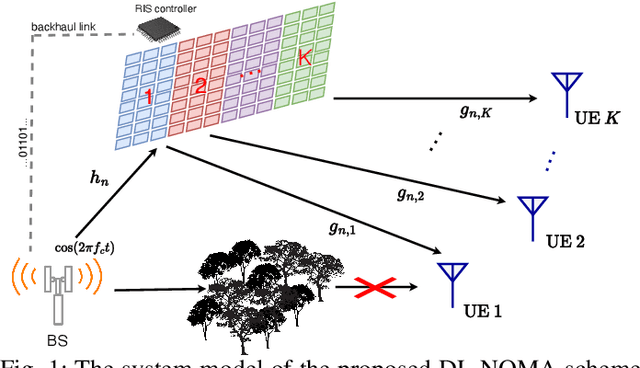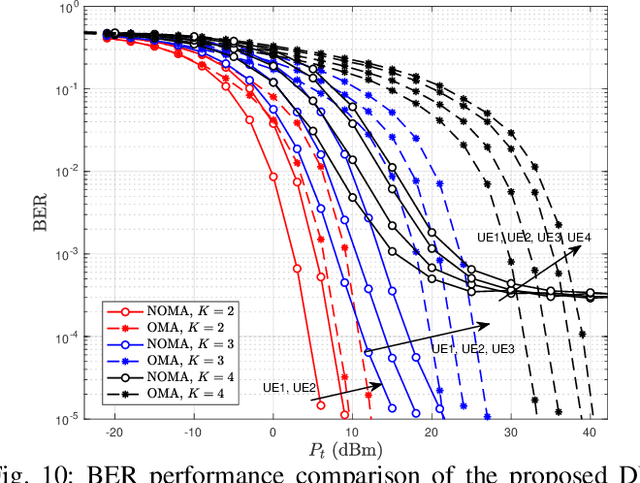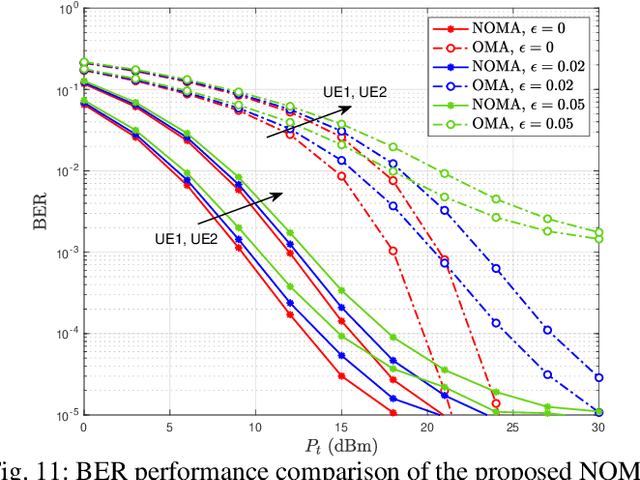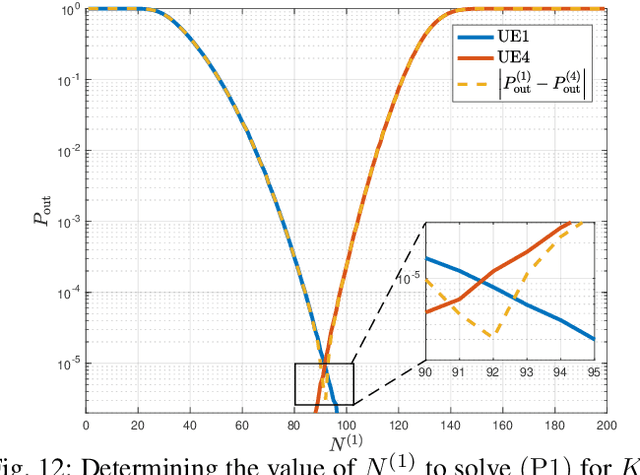Reconfigurable Intelligent Surface-Enabled Downlink NOMA
Paper and Code
Jan 09, 2024



Reconfigurable intelligent surfaces (RISs) bring great potential to the advancement of 6G and beyond wireless communication technologies. RISs introduce a great degree of flexibility, allowing some sort of virtual control over the wireless channel. Exploiting the flexibility introduced by RISs, we propose a novel RIS-enabled downlink (DL) non-orthogonal multiple access (NOMA) scheme where NOMA is enabled over-the-air rather than at the base station (BS) or the receiver (Rx). Here, the RIS is partitioned into distinctive groups where each part of the RIS serves a different user equipment (UE) to perform multiple accessing. The BS transmits an unmodulated signal to the RIS, and each partition modulates the impinging signal over-the-air by introducing a phase shift according to the incoming information bits to serve the corresponding UE. First, the end-to-end system model for the proposed system is presented. Furthermore, outage probability calculations, theoretical error probability analysis, and bit error rate (BER) derivations are discussed and reinforced with comprehensive computer simulation results.
 Add to Chrome
Add to Chrome Add to Firefox
Add to Firefox Add to Edge
Add to Edge